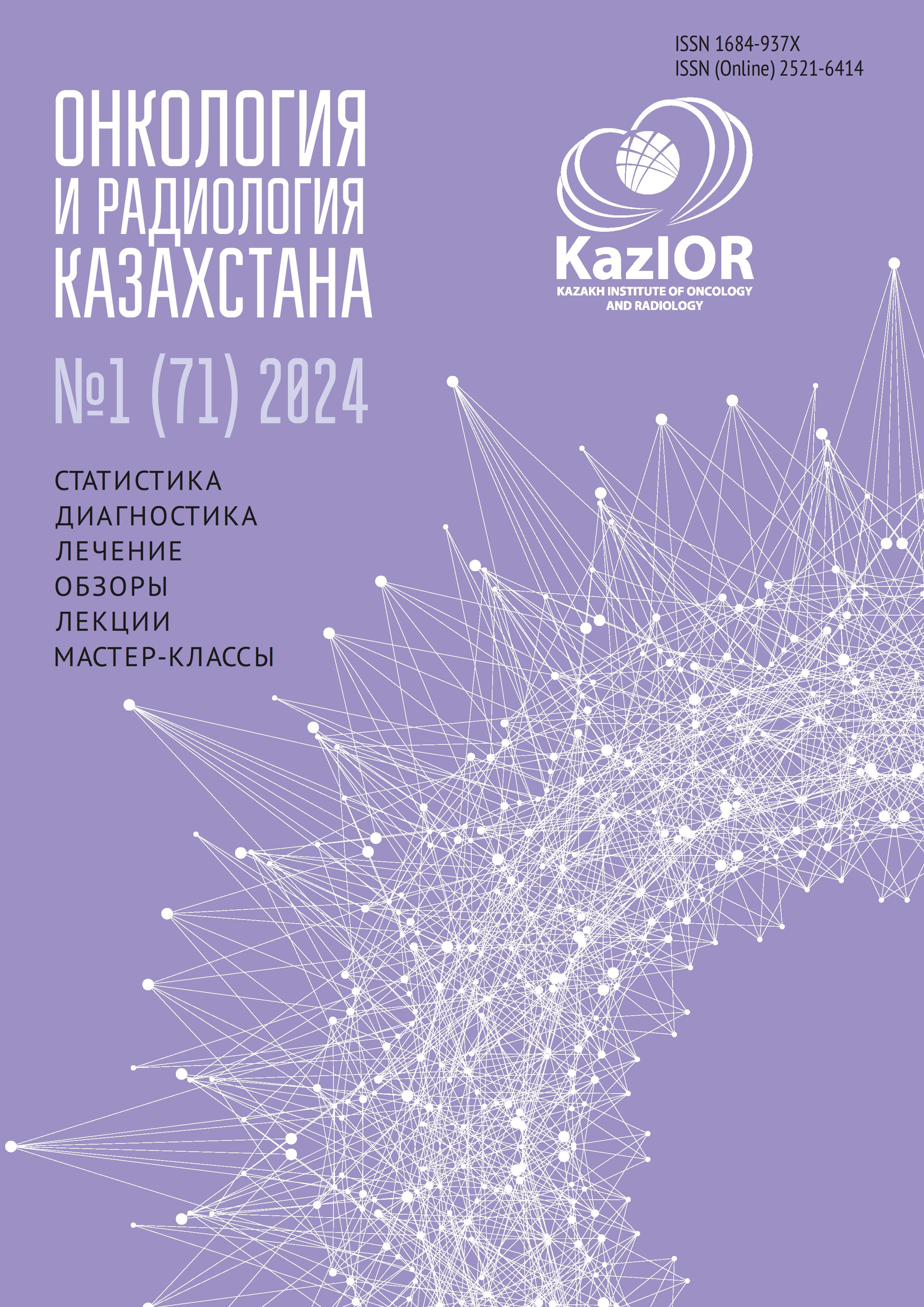Асқазан қатерлі ісігіндегі жасуша пролиферациясының маркері (Ki-67) мен жасы, жынысы, аурудың сатысы және дифференциация дәрежесі арасындағы байланыс
DOI:
https://doi.org/10.52532/2521-6414-2024-1-71-22-29Кілт сөздер:
асқазан қатерлі ісігі, морфология, гистология, иммуногистохимия, Ki67, пролиферацияАңдатпа
Өзектілігі: Асқазанның қатерлі ісігі (АҚІ) қатерлі ісік ауруының құрылымында жетекші орынды иеленуін жалғастыруда. Қатерлі жаңа түзілімдермен сырқаттанушылықты төмендету бойынша кешенді жоспардың бағыттарының бірі – жас, жыныс, аурудың сатысымен асқазан ісігіндегі Ki-67 жасушалық пролиферация маркерінің экспрессиясының арасындағы байланыс негізінде жоғары тиімді ерте диагностиканы әзірлеу. және иммуногистохимиялық әдістің нәтижелері бойынша ісіктердің дифференциациялану дәрежесі.
Зерттеудің мақсаты – асқазан қатерлі ісігіндегі Ki-67 маркерінің экспрессиясы мен жасы, жынысы, аурудың сатысы және ісіктердің дифференциация дәрежесі арасындағы байланысты зерттеу болды.
Әдістері: Зерттеу дизайны салыстырмалы сипаттамалық зерттеу болды. Зерттеуге 2021-2022 жылдар аралығында Батыс Қазақстан медицина университетінің Марат Оспанов атындағы медициналық орталығының патология бөлімшесінен асқазан обырына операция жасау кезінде алынған асқазан обырының 0-IIIС сатысы бар 109 науқастың хирургиялық материалы қолданылды. Марат Оспанов атындағы БҚМУ гистология кафедрасының морфологиялық зертханасында гистологиялық және иммуногистохимиялық зерттеулер жүргізілді. Алынған мәліметтер статистикалық өңдеуден өтті.
Нәтижелері: Осы зерттеу Ki-67 деңгейі мен асқазан обырының гистологиялық дәрежесі арасында маңызды статистикалық корреляцияны көрсетті (p=0,039). «pTNM сатысы» (p=0,894), «Жасы» (p=0,664), «Жынысы (F – 1, M – 2)» (p=0,928), «Орналасу (кардиальды – 1,
дене – 2, антральды және пилорикалық – 3)» (p=0,860) Ki67 көрсеткіштерін салыстыру кезінде өрнек деңгейімен статистикалық маңызды корреляцияны орнату мүмкін болмады.
Қорытынды: Асқазан қатерлі ісігіндегі Ki-67 экспрессиясы мен гистологиялық дифференциация дәрежесі (p=0,039) арасындағы байланыс адъювантты терапияны қажет ететін агрессивті ісіктері бар науқастарды анықтауға көмектеседі.

